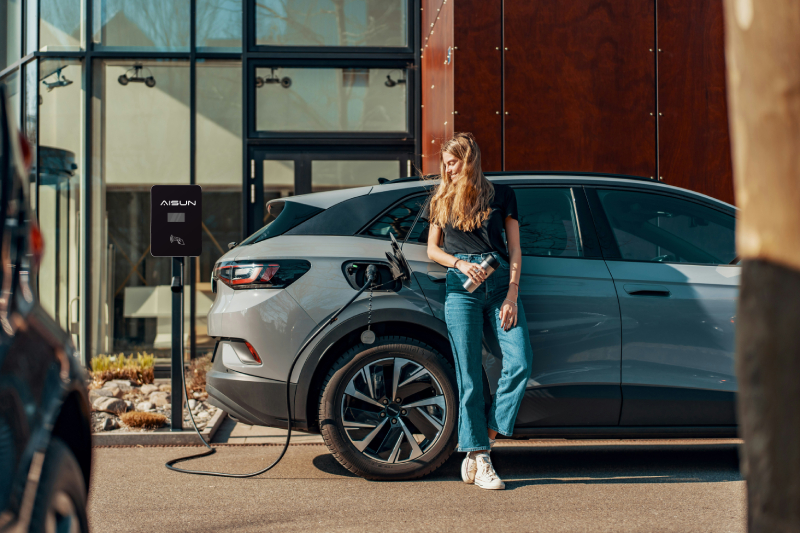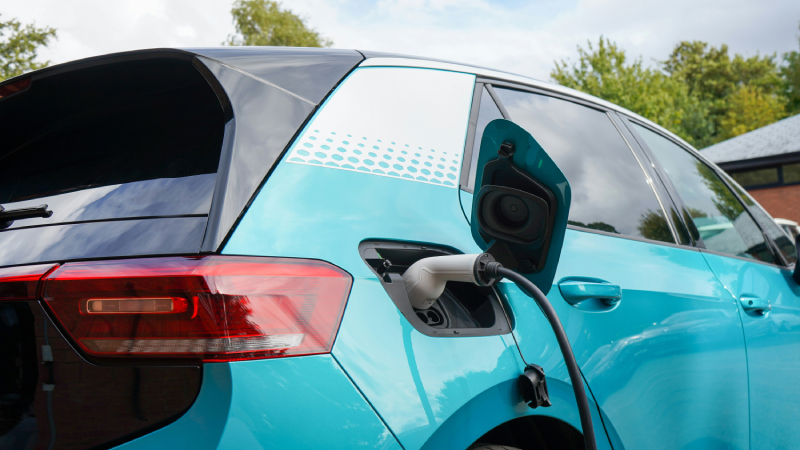A bill clearing the way for Wisconsin to begin building a network of electric vehicle charging stations along interstates and state highways has been sent to Gov. Tony Evers.
The state Senate on Tuesday approved a bill that would amend state law to allow charging station operators to sell electricity at retail. Under current law, such sales are limited to regulated utilities.
The law would need to be changed to allow the state Department of Transportation to provide $78.6 million in federal financial assistance to private companies that own and operate high-speed charging stations.
The state received funding through the National Electric Vehicle Infrastructure Program, but the Department of Transportation was unable to spend the funds because state law prohibits the direct sale of electricity to non-utilities, as required by the NEVI program.
The program requires participating electric vehicle charging station operators to sell electricity on a kilowatt-hour or delivered capacity basis to ensure price transparency.
Under current law, charging station operators in Wisconsin can only charge customers based on how long it takes to charge a vehicle, creating uncertainty about charging costs and charging times.
Read more: From solar farms to electric vehicles: 2024 will be a busy year for Wisconsin’s transition to clean energy.
The program allows states to use these funds to cover up to 80% of the cost of installing private high-speed charging stations that are compatible with all makes of vehicles.
The funds are intended to encourage companies to install charging stations at a time when the adoption of electric vehicles is accelerating, even though they make up only a small portion of all vehicles.
By the end of 2022, the latest year for which state-level data is available, electric vehicles accounted for about 2.8% of all passenger vehicle registrations in Wisconsin. That’s less than 16,000 cars.
Since 2021, state transportation planners have been working on the Wisconsin Electric Vehicle Plan, a state program created as part of the federal bipartisan infrastructure law.
DOT’s plan is to work with convenience stores, retailers and other businesses to build about 60 high-speed charging stations that will be located about 50 miles apart along highways designated as alternative fuel corridors.
These include interstate highways, as well as seven U.S. Highways and portions of State Route 29.
Each charging station must have a minimum of four high-speed charging ports, and the AFC charging station must be available 24 hours a day, 7 days a week.
Gov. Tony Evers is expected to sign the bill, which mirrors a proposal lawmakers removed from his 2023-2025 budget proposal. However, it is not yet clear when the first charging stations will be built.
In early January, the Ministry of Transport began collecting proposals from business owners wishing to install charging stations.
A Department of Transportation spokesman said last month that proposals must be submitted by April 1, after which the department will review them and begin “promptly identifying grant recipients.”
The NEVI program aims to build 500,000 electric vehicle chargers along highways and in communities across the country. Infrastructure is seen as a critical early investment in the country’s transition away from internal combustion engines.
The lack of a reliable charging network that drivers can rely on that is fast, accessible and reliable has been cited as a major barrier to electric vehicle adoption in Wisconsin and across the country.
“A statewide charging network will help more drivers switch to electric vehicles, reducing air pollution and greenhouse gas emissions while creating more opportunities for local businesses,” said Chelsea Chandler, director of the Clean Climate, Energy and Air Project of Wisconsin. “Lots of jobs and opportunities.”
Post time: Jul-30-2024







